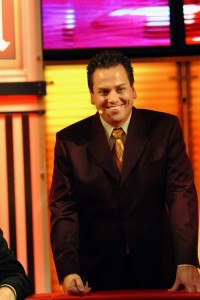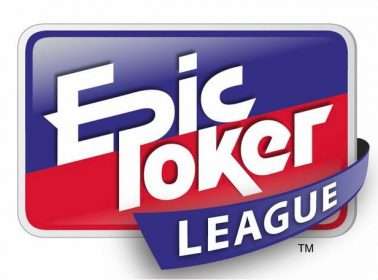Epic Poker League Pokes Head Up From Grave, Pays Small Amount to Creditors
Normally, someone involved in major tournament poker receiving a small sum of money would not be noteworthy, but in the case of famed tournament director Matt Savage and a number of other people recently, it was a pleasant surprise.
A couple weeks ago, Savage tweeted, “Received a settlement check from @EpicPoker today, not what I was owed but it really was like finding money in the street. #Happy.”
For those unfamiliar, and considering its lifespan, it would not be shock for people to not remember it, the Epic Poker League was created in 2011 as an attempt to create a mainstream league for professional poker players. Owned by Federated Sports + Gaming, Savage served as the tournament director, while Annie Duke was the league’s commissioner and former World Series of Poker exec Jeffrey Pollack was the Executive Chairman. In order to participate, players must qualify and earn a membership card, not unlike other professional sports leagues for individual sports such as the PGA. Criteria for membership were steep, consisting of a combination of lifetime earnings, major tournament titles, and major tournament cashes. For example, the lowest membership tier was the “2-Year B Card,” which required $1.25 million in lifetime earnings and nine major cashes. The highest level was the 5-Year Card which was earned via $4 million lifetime winnings, three major titles, and nine major cashes.

Matt Savage
Image courtesy: @SavagePoker
The EPL’s first season was to consist of five tournaments. The first four had a $20,000 buy-in and $400,000 in added prize money while the fifth was an ambitious $1 million guarantee freeroll open to the top 27 qualifiers from the previous four events. The league was doomed from the start, though, as it burned through cash much faster than it could make it. Only the first three tournaments were held.
The league was also widely criticized for the way it operated. In August 2011, Daniel Negreanu blasted the EPL, saying, in part, “…I don’t believe this product will resonate with the public and based on my intimate knowledge of how these types of things work, I don’t think it’s possible to bring in enough revenue to survive. The only legitimate chance the league has to survive is if regulation happened in the U.S. and they were able to create an online poker site.”
He added that even the World Series of Poker had trouble finding large, deep-pocketed, name-brand sponsors. In his view, Pollack and Duke were banking on online poker becoming legalized and regulated in the United States and then making money off of an Epic Poker online poker site. This was just months after Black Friday.
It didn’t help matters that the EPL’s hand was forced after its first event and it suspended champ Chino Rheem after numerous players complained about the mounting debts he owed in the poker community. He was suspended for not “meeting ‘financial responsibilities on time and honoring contractual agreements.’”
Additionally, in September 2011, the Epic Poker League suspended Chris Ferguson and Annie Duke’s brother, Howard Lederer, for their roles in the misappropriation of Full Tilt player funds.
It all finally broke down when Federated Sports + Gaming filed for bankruptcy in February 2012, leaving reportedly over 100 creditors holding the back for over $5 million debt.
Fast forward to today and the Epic Poker League has all but been forgotten, a sad footnote in the history of poker. Mention the league to someone who was in the poker community in 2011 and you will mostly get the kind of disapproving head shake a parent might give to a child who got a grape stuck up their nose for the third consecutive day. It was a few people trying to make a quick buck off of the popularity of poker and severely overreaching. In the meantime, a lot of people of were owed money.
Those people still are owed money, just not as much as they once were. Matt Savage, who is well respected within the industry and was a victim in this situation, told CalvinAyre.com that he was owed $33,333, though he has not said how much he actually received. If it is any indication of what he may have been paid, poker blogger Short-Stacked Shamus wrote on his site Hard-Boiled Poker that he receive “roughly 10% of the owed amount” from some columns he wrote for the Epic Poker League’s website.
One of the funny things about all of this is that the payments, as minimal as they may be, seem to have come out of the blue. Like Savage said, it was like found money. Everybody had chalked up any money owed as a loss and just tried to forget about the travishamockery that was the EPL. It does not appear that they will receive any more money in the future, though, as Shamus wrote that the letter he received said it was part of the “Final Distribution.”



















COMMENTS